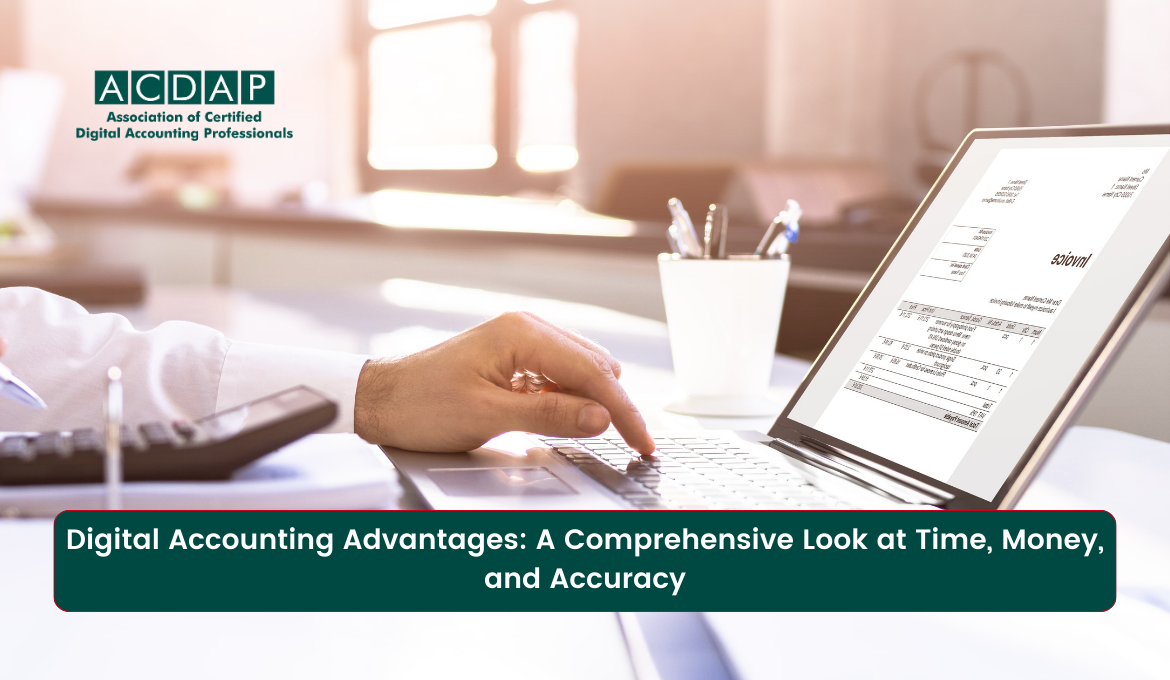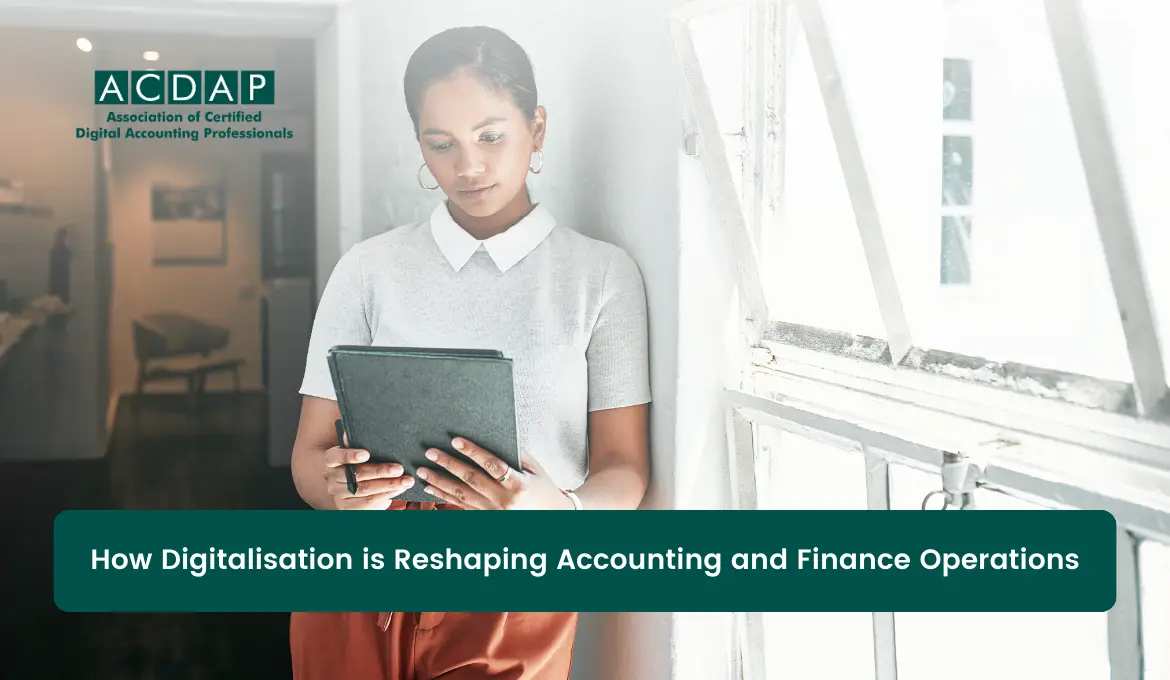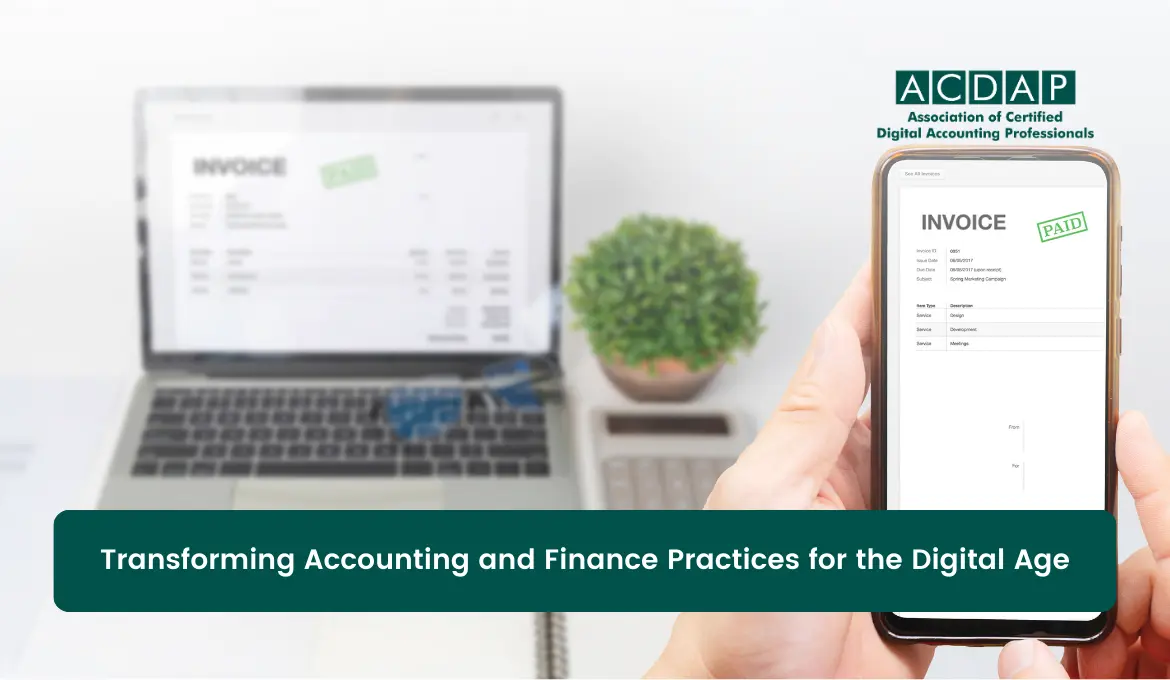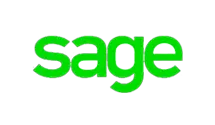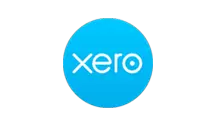In the dynamic landscape of modern business, adopting digital accounting solutions has become increasingly prevalent. Accounting has been included, with technology continuing to revolutionise various industries. From small businesses to large enterprises, the shift towards digital accounting brings many benefits, significantly impacting time management, cost-effectiveness, and accuracy. Let's explore these advantages in depth.
Streamlining Time Management
One of the most prominent advantages of digital accounting is its ability to streamline time management processes. Traditional manual accounting methods are often laborious and time-consuming, requiring significant manual data entry, reconciliation, and report generation hours. However, with digital accounting software, such tasks are automated, allowing accountants to allocate their time more efficiently.
Digital accounting tools automate routine processes, such as data entry, transaction categorisation, and bank reconciliations. This automation saves time and minimises the risk of human error, ensuring greater accuracy in financial records. Furthermore, real-time updates and access to financial data empower accountants to make informed decisions promptly, enhancing overall productivity and responsiveness.
Cost-effectiveness and Resource Optimisation
In addition to time savings, digital accounting offers significant cost-effectiveness and resource optimisation benefits. Traditional accounting methods require substantial investments in paper-based systems, storage space, and manual labour. On the contrary, digital accounting eliminates the need for paper-based documentation, significantly reducing printing and storage costs.
Moreover, cloud-based accounting solutions eliminate the need for costly on-premises infrastructure and maintenance. By leveraging cloud technology, businesses can access their financial data securely from anywhere, anytime, without expensive hardware or software installations. This scalability and flexibility ensure that companies adapt to changing needs without incurring additional expenses.
Enhanced Accuracy and Decision-Making
Accuracy is fundamental in accounting, and digital solutions offer exceptional financial reporting and analysis precision. Automated processes minimise the likelihood of human error, ensuring that financial records remain accurate and up-to-date. Furthermore, digital accounting tools offer comprehensive audit trails and controls, making complying with regulatory requirements and standards easier.
Furthermore, digital accounting enables sophisticated data analysis and visualisation, empowering accountants to uncover insights and trends hidden within vast amounts of financial data. Advanced reporting features, such as customisable dashboards and interactive graphs, facilitate clear and concise communication of financial information to stakeholders. These insights empower businesses to swiftly make data-driven decisions, which fuels strategic growth and enhances profitability.
The Bottom Line
In conclusion, the advantages of digital accounting are undeniable, offering a transformative approach to managing finances in the digital age. Digital accounting solutions empower businesses to thrive in a competitive landscape by streamlining time management processes, optimising costs, and enhancing accuracy and decision-making capabilities.
As technology advances, businesses must adopt digital accounting tools to stay competitive and foster sustainable growth. By leveraging technology's capabilities, companies can seize new opportunities, enhance efficiency, and achieve remarkable success in the constantly evolving realm of finance.
Digital accounting isn't just a trend – it's the future of accounting. So why wait? Embrace the advantages of digital accounting today and propel your business towards a more efficient, cost-effective, and accurate financial future.
